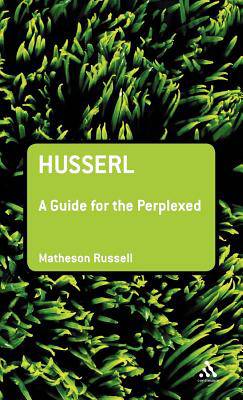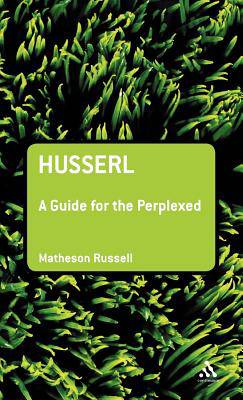
- Retrait gratuit dans votre magasin Club
- 7.000.000 titres dans notre catalogue
- Payer en toute sécurité
- Toujours un magasin près de chez vous
- Retrait gratuit dans votre magasin Club
- 7.000.0000 titres dans notre catalogue
- Payer en toute sécurité
- Toujours un magasin près de chez vous
Description
Continuum's Guides for the Perplexed are clear, concise and accessible introductions to thinkers, writers and subjects that students and readers can find especially challenging. Concentrating specifically on what it is that makes the subject difficult to fathom, these books explain and explore key themes and ideas, guiding the reader towards a thorough understanding of demanding material. Edmund Husserl's work is a cornerstone of Continental philosophy and the phenomenological tradition. Husserl stands as a key influence on such major philosophers as Heidegger, Merleau-Ponty and Sartre, and is required reading for anyone studying phenomenology and European philosophy of the last 100 years. However, the complex ideas central to his work, and the rather convoluted language in which they are expressed, mean that arriving at a full and clear understanding of Husserlian phenomenology is no small undertaking. Husserl: A Guide for the Perplexed addresses directly those major points of difficulty faced by students of Husserl and leads them expertly through the maze of complex ideas and language. In identifying and working through common sources of confusion arising from Husserl's philosophy, the book builds up a comprehensive and authoritative overview of his thought and, more broadly, of phenomenology itself. The text covers the central tenets of phenomenology, Husserl's work on consciousness, and key philosophical topics in Husserl, including psychologism, intersubjectivity, the lifeworld and the crisis of the sciences.
Continuum's Guides for the Perplexed are clear, concise and accessible introductions to thinkers, writers and subjects that students and readers can find especially challenging. Concentrating specifically on what it is that makes the subject difficult to fathom, these books explain and explore key themes and ideas, guiding the reader towards a thorough understanding of demanding material. Edmund Husserl's work is a cornerstone of Continental philosophy and the phenomenological tradition. Husserl stands as a key influence on such major philosophers as Heidegger, Merleau-Ponty and Sartre, and is required reading for anyone studying phenomenology and European philosophy of the last 100 years. However, the complex ideas central to his work, and the rather convoluted language in which they are expressed, mean that arriving at a full and clear understanding of Husserlian phenomenology is no small undertaking. Husserl: A Guide for the Perplexed addresses directly those major points of difficulty faced by students of Husserl and leads them expertly through the maze of complex ideas and language. In identifying and working through common sources of confusion arising from Husserl's philosophy, the book builds up a comprehensive and authoritative overview of his thought and, more broadly, of phenomenology itself. The text covers the central tenets of phenomenology, Husserl's work on consciousness, and key philosophical topics in Husserl, including psychologism, intersubjectivity, the lifeworld and the crisis of the sciences.
Spécifications
Parties prenantes
- Auteur(s) :
- Editeur:
Contenu
- Nombre de pages :
- 216
- Langue:
- Anglais
- Collection :
Caractéristiques
- EAN:
- 9780826485939
- Date de parution :
- 19-06-06
- Format:
- Livre relié
- Format numérique:
- Genaaid
- Dimensions :
- 140 mm x 216 mm
- Poids :
- 421 g

Les avis
Nous publions uniquement les avis qui respectent les conditions requises. Consultez nos conditions pour les avis.






